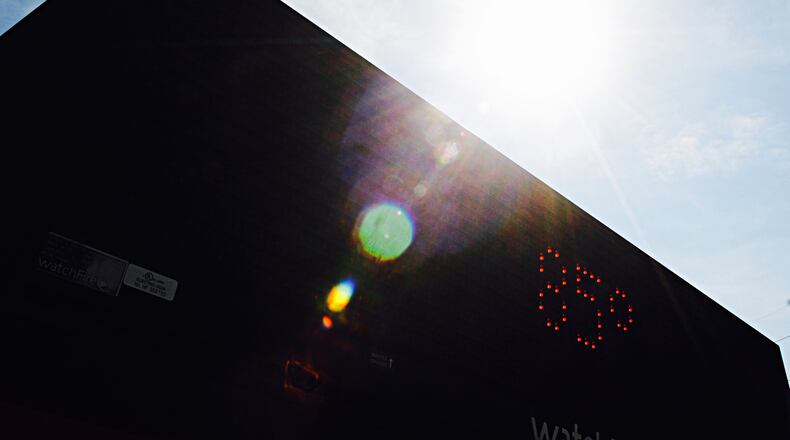Public Health offers the following tips to stay healthy during hot weather:
Stay cool
- Stay in air-conditioned buildings
- Don’t rely on fans as primary cooling devices. Use air conditioning when available.
- Limit outdoor activity, especially at midday when it’s the hottest, and avoid direct sunlight.
- Wear loose, lightweight and light-colored clothing.
- Take cool showers and baths to lower your body temperature.
- Adjust blinds, shades and awnings to stay out of the sun.
- Check on at-risk friends, family and neighbors at least twice a day.
- Do not leave children or pets unattended in closed vehicles. Temperatures can reach dangerous levels quickly.
Stay hydrated
- Drink more water than usual and don’t wait until you’re thirsty to drink.
- Drink two to four cups of water every hours while working or exercising outside.
- Avoid alcohol or liquids containing high amounts of sugar.
- Make sure friends, family and neighbors are drinking enough water.
Stay informed
- Check local news for extreme heat warnings and safety information.
- Visit www.phdmc.org for more information and tips on preventing heat-related illnesses.
- Keep friends, family and neighbors aware of weather and heat safety information.
Public Health also released the following symptoms of heat-related illnesses and the appropriate response:
Heat exhaustion
Symptoms
- Heavy sweating
- Weakness
- Skin cold, pale and clammy
- Weak pulse
- Fainting and vomiting
What you should do
- Move to a cooler location
- Lie down and loosen clothing
- Apply cool, wet cloths to as much as your body as possible
- Sip water
- If you have vomited and it continues, see immediate medical attention
Heat stroke
Symptoms
- Body temperature of more than 103 degrees
- Hot, red, dry or moist skin
- Rapid and strong pulse
- Possible unconsciousness
What you should do
- Call 911 immediately
- Move the person to a cooler environment
- Reduce the person’s body temperature with cool cloths or even a bath
- Do not give fluids
In Other News
About the Author
